Cats are considered mature at 7-10 years, senior at 11-14 years (human age 60-72 years) and Super Senior at 15+ years (human age 76+ years) (Your cat’s age in human years). Here are some tips for caring for your older cat.
Once past 2 years, cats age at a rate of 4 years per every human year. Regular veterinary visits are beneficial for your Mature, Senior and Super Senior cats. Good veterinary care can make your older cat’s senior years golden years.
Mature, Senior and Super Senior cats have the same needs as younger animals.
- safe place
- multiple and separated resources – food, water, litter boxes
- opportunity for play
- positive, consistent and predictable human interaction
- an environment that respects the cat’s sense of smell
Caring for Your Older Cat: The “Senior” Cat Friendly Home
Safe Places
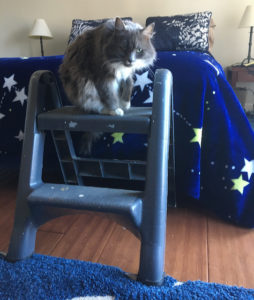
An older cat needs private and secure places to retreat to, to rest and take a break from household activity. Steps or ramps provide easy access to higher places. A heated bed with extra padding can be a real hit for an older cat stiff from arthritis.
Resources – Food, Water, Litter Boxes
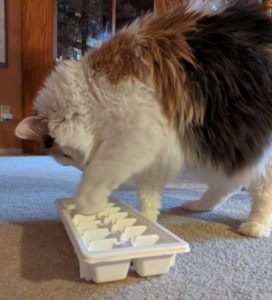
Still a hunter at heart, your older cat is designed to eat small meals, frequently during the day. Feeding stations throughout the house will encourage her to prowl and “hunt” her food, stimulating her physically and mentally.
Your old cat will most likely drink more than he did when he was young. Locate water sources throughout the house. If your cat seems stiff, try raising his food and water up so that he does not have to crouch down as much to eat and drink.
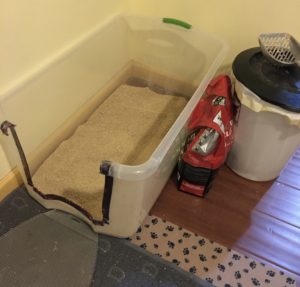
THE LITTER BOX
- Large enough for your cat to turn around.
- Entrance has a low sill for easy access.
- On each floor of the house
- In areas that are secluded and private
- Finer textured litter may be more comfortable for older kitty paws.
Play is still important
Older cats can still can benefit from swatting at a wand toy or chasing treats. Daily play time close to early morning or early evening mimics the cat’s natural rhythms – prey is most active at these times.
Human Interaction
A familiar predictable routine reduces anxiety for all cats. Caring for your older cat should include grooming as well as play time. Grooming becomes more challenging for older cats as their flexibility decreases.
- Make grooming sessions frequent and short.
- Cats often groom after eating. This is a good time to gently comb or brush the older cat.
- Regular nail trims are important for older kitties – the nails of older cats can sometimes grow into their paw pads, which is painful.
- Older cats still need access to scratching areas – horizontal and angled scratchers may be easier for them to use
Your Cat’s Sense of Smell
Cats have a sense of smell that is 14x more sensitive than ours.
- Diffusers containing facial pheromones placed near some of your older cat’s resting places will convey the messages of familiarity and safety
- Scratching releases pheromones from glands in your cat’s paws that help mark his territory- have scratchers available to your older cat
- Avoid using scented litters and strong smelling cleaners
Outdoor Access
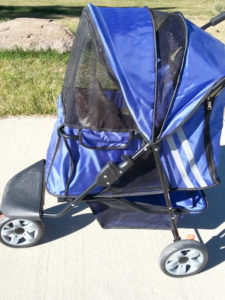
SAFE outdoor access is stimulating for older cats as well as young cats. Your cat may like some supervised outdoor time with you – the daily “walk” can provide quality time for both cat and owner.
IF you are lucky enough to live in a quiet neighborhood or have access to a quiet park, a cat stroller can get you and your old friend out.
- Get her used to the stroller first – offer some food in it, let her nap in it
- Start with SHORT walks in QUIET places at QUIET times.
- Increase the walking time IF she is enjoying it.
